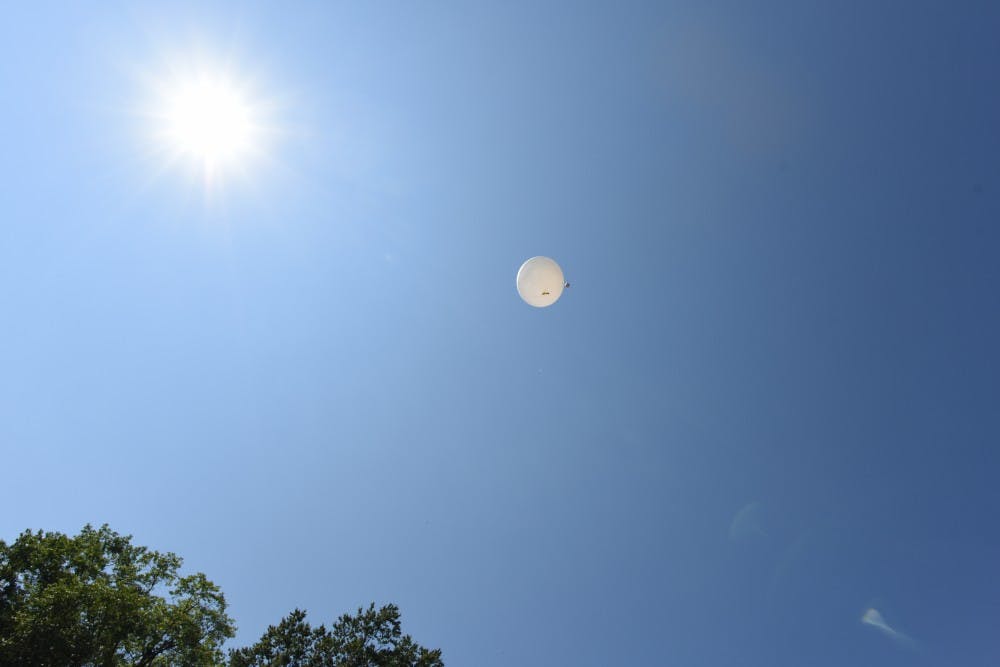NC State's Sounding Club released a weather balloon 15 minutes after the peak of the eclipse Monday to collect data about the atmosphere during an eclipse.
The club partnered with the NCSU College of Sciences to host an eclipse celebration in the school's Brickyard, where they launched the balloon.
Thousands of people came to the celebration to watch the eclipse, and hundreds of students gathered in a circle around members of the club as they launched the balloon. Scientists attending the event passed out over 1,000 eclipse viewing glasses.
Brian Vaughn, a senior Environmental Studies major at UNC attended the event during a class he takes on State’s campus.
“Being at the event definitely left the impression that the student body and the NC State community in general was really excited about the eclipse,” said Vaughn. “The other thing I noticed was it wasn’t just State students, it seemed like a lot of families were there, people setting up picnics.”
The club's goal was to collect atmospheric data about the effect of the eclipse on the climate, said Michael Mugrage, president of the Sounding Club.
“What we were hoping to gain from this was to see the exact impact on the near surface conditions with respect to temperature, dew point and humidity,” Mugrage said. “Just how much of an impact the blocking of solar radiation from the eclipse itself had on the environmental conditions.”
The club was inspired by the Eclipse Ballooning Project occurring across the country during the eclipse and subsequently partnered with the State Climate Office and College of Sciences to arrange the launch, said Mugrage.
The radiosonde — a tool used to measure the atmosphere — on the balloon malfunctioned after the launch, and the club was unable to collect atmospheric data.



